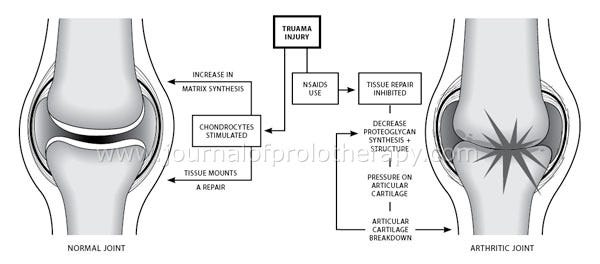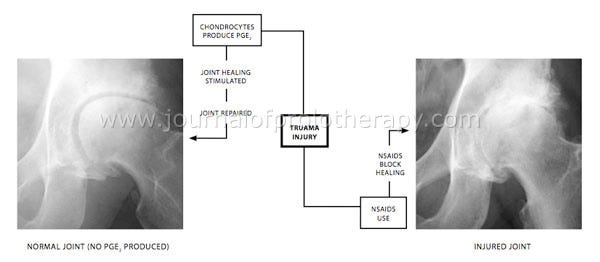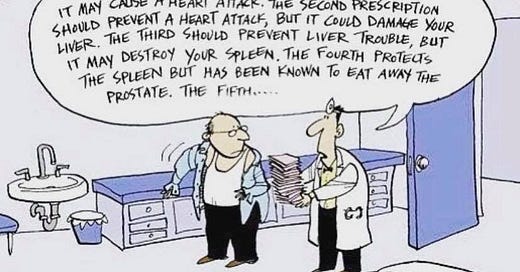A study published earlier this year found that brain inflammation increased during the lockdowns, and it wasn’t due to a covid infection. What caused this is uncertain, but it’s likely that several factors have contributed, as life has changed profoundly for many since then. Neuroinflammation is not something to be taken lightly, so taking steps to reduce chronic inflammation are essential. Modern medicine is quick to prescribe anti-inflammatory drugs for inflammation, but this fails to address the underlying dysfunction and only leads to more problems. Some of the more known side effects include ulcers, heart issues, high blood pressure, kidney dysfunction, and even hearing problems. Some of these drugs may even have addictive properties and a recent study also found that these drugs can ironically cause chronic pain.
While many people are using anti-inflammatory drugs for joint pain, it’s ironic to see that studies have revealed that these drugs can speed up the degeneration of joints, especially the knees and hips. As a result, it appears that anti-inflammatory drugs actually “increases the need for a joint replacement.” (See images below)


Fortunately, there are many scientifically-proven, natural, and non-toxic ways of reducing inflammation in the body, which are not taught in medical school, but require some effort on your part. The following are just a few that you can easily incorporate into your lifestyle:
Consume at least 5 servings of anti-inflammatory foods daily, such as green leafy vegetables, berries, broccoli, beetroot, pineapples, flaxseeds, walnuts, tomatoes, turmeric, and ginger.
Earth or ground your body daily for at least 30 minutes.
Absorb more sunlight.
Get more active: walk, climb, play, stretch, lift, dance, jump, swim, cycle, run, garden, etc.
Stay hydrated, avoid alcohol, and limit caffeine.
Limit you electrosmog exposure, especially when you’re sleeping.
Prioritize your regular sleep routine.
Remember, that inflammation is not the result of an anti-inflammatory drug-deficiency, but rather a lifestyle deficiency. Specific chiropractic care also improves circulation, as well as lymphatic drainage from the brain, allowing you to improve even further.
by Dr SJ NANA, DrNana.co.za
For more information:
The pandemic brain: Neuroinflammation in non-infected individuals during the COVID-19 pandemic
Research finds increases in 'pandemic brain' after COVID-19 lockdowns
COVID-19 lockdown measures may affect brain health of people who aren’t infected, MGH study shows
Nonsteroidal anti-inflammatory drugs: adverse effects and their prevention
New Side Effects of Popular Medicines Discovered: Anti-Inflammatory Drugs Could Cause Chronic Pain
If food is medicine, why isn’t it taught at medical schools?
Lifestyle medicine and physical activity knowledge of final year UK medical students




